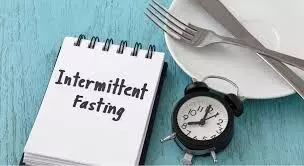Portion control, choice of foods important even after intermittent fasting – Nutritionist

Mr. Douglas Akuba, a nutritionist based in Abuja, has advised that portion control and choice of foods are very necessary even after intermittent fasting.
Akuba, who is also the Chief Executive Officer (CEO), Green Economy Alternative Africa, said this in an interview on Wednesday in Abuja.
The expert said that in the morning, after a night's long fast, the body is almost starting to burn fat, noting that just before that is about to happen, they flood the liver with glucose.
"If you want to lose weight, the worst thing you can do is start your day with breakfast cereals," he stressed.
The expert said that people cannot fast for 18 hours and then binge on bread or rice.
"You should avoid bread; your rice should be portion controlled and cooked with mixed or leafy veggies, with plenty of eggs, fish, or meats."
"When dealing with stubborn belly fat, make sure to hydrate properly and pay attention to how you feel after taking a particular meal," he advised.
He said that proteins and fats stimulate leptin, a satiety hormone that makes a person feel full easily and keeps hunger pangs at bay.
He said that refined carbs like bread and pasta stimulate the "ghrelin factor," or "hunger hormones," noting that it would push a person to binge as ghrelin stimulates hunger and would make a person overeat.
"Low carbs, high protein, and medium-healthy fat diets are all you need. Small rice, five to six eggs, mixed veggies, and sauce on the side."
"More soups with plenty of meats, pomo, fish, and other important obstacles will ensure you don't need too much to swallow."
"Avoid wheat and soybean oil. Cook your soups with beef tallow and palm oil if possible."
"Extra fats from the tallow keep you full longer and are great for your gut health," he said.
According to him, "To get the best of good health, fast for 30 hours every week, 48 hours twice a month, and between 16 and 18 hours daily with plenty of water. You can add some pink salts to your water during the fasts, which is great for your guts."
He said that Nigerians with ulcers need to add some salt to their carrot- or cucumber-infused water, noting that they should only overdo it.
"People with small intestinal bacterial overgrowth (SIBO) and leaky guts should fast a bit longer to induce healing of their guts. SIBO is characterized by bloating, constipation, indigestion, and low intestinal motility."
"People with SIBO, even when water constipates them, may have weight gain issues due to a lack of vital nutrients lost by the gut's inability to absorb them. When they follow the process and apply it, they will see results," he advised.



